 How can my great-great grandfather, Marco, help clarify how we view the beginning of life and the universe? Well, interesting question. Though it will take us circuitously through a barking-mad courtroom, a mock trial, and some rather startling suggestions regarding my own ancestry, the final picture should be crystal clear.
How can my great-great grandfather, Marco, help clarify how we view the beginning of life and the universe? Well, interesting question. Though it will take us circuitously through a barking-mad courtroom, a mock trial, and some rather startling suggestions regarding my own ancestry, the final picture should be crystal clear.
But first things first: a little background. There are two questions that demand (!) an answer.
Just Two Simple Questions
I have friends who are creationists, as indeed I myself once was. We’ve been dialoguing quite a lot since the Ham-on-Nye debate not long ago. So much so, that I have had to put aside some previously planned blog projects and such, and I’ve been spending my time fielding science sorts of questions instead. Or at the very least, I’ve been trying to.
I’ve run across a very odd line of reasoning in the process, and it may be paraphrased like this:
Bill Nye and his positions can be rejected, because he cannot answer two simple questions: (1) how life comes from dead matter and (2) where all the stuff of the universe came from. He doesn’t know, and he is hiding a faith belief in molecules-to-man or eternal super-power matter. His claims requires too much faith for me.
Now, at this point I’ve typed a few thousand words in my discussions of these and other related science questions, all to little avail. There is a great vortex surrounding our talks, generated by a massive confluence of scientific ignorance, Creationist parroting, baleful repetition of already answered questions, and a deep conviction that somehow these two questions constitute a sort of Kryptonite for Scienceman. And if Scienceman says he does not know, why listen to him? Better yet, stamp him as Faithman, because he thinks life arose somehow, and that matter came from somewhere, but he does not have evidence for his beliefs. And if its all faith either way, we can all go back home and avoid doing any real work toward learning, right? Mmmm, no.
The most honest answer to the two questions goes like this:
- Science does not know what came before the Big Bang, or how life first came to be.
- Science does know quite a lot as you move back through time toward those starting points, with very well-supported histories reaching back billions of years.
- The line between the understood and the foggy continues to inch back through history as science learns more.
Explanation: rejected.
This explanation is not a total solution. And nothing less will be considered acceptable. The same two questions continue to be parroted again and again by those who insist with belligerence that if you cannot answer their pet question, they are allowed to discount and reject facts when presented to them about what is known.
You may detect that I’m edging up to a looming problem with these two Kryptonite questions – and there you would be right. But let’s hold off a bit, and get to the very important explainer for the problem at hand: Marco’s daddy.
Judge and Jury
My hands clutch the awkward chair of the courtroom. A shabbily uncomfortable perch, ill-fitted with a medium-low back, it seems to discourage both leaning back and sitting straight. The prosecutor thunders as he strides, now before me, then before the jury.
Prosecutor: “Tell me, who is your father?”
Me: “Henry.”
Prosecutor: “And who was his father?”
Me: “Henry Senior.”
Prosecutor: “Ah yes, I see. But let’s trace this back, keep going.”
Me: “My great-grandfather was Alfredo, and his father was Marco, who first came over on the boat from Italy.”
Prosecutor: “Yes, yes – and who was his father?”
Me: “Well… I don’t know… I guess we don’t really know our genealogy any further back than that.”
But this answer, it seems, constitutes an unperceived but catastrophic misstep.
 Prosecutor: “Wait, you don’t know? You do not know? Let me see if I understand: you expect us to take you seriously about your supposed ancestry, yet you do not really seem to know what your genealogy is? From the look of things, you really don’t know where you came from at all, do you? How do you know you actually have an ancestry further back than that?”
Prosecutor: “Wait, you don’t know? You do not know? Let me see if I understand: you expect us to take you seriously about your supposed ancestry, yet you do not really seem to know what your genealogy is? From the look of things, you really don’t know where you came from at all, do you? How do you know you actually have an ancestry further back than that?”
My visible perplexity and kerflustered stammering at such a conclusion draws a swift theatric, directed to the jury:
Prosecutor: “Ladies and gentlemen, this man cannot pretend to tell us where he came from. He cannot answer one simple question: who were his ancestors in Italy? Just one simple question, and entirely unanswered. And we are expected to assume that he had ancestors before this supposed Marco figure, with no evidence whatever. He expects this court to simply accept a partial genealogy, by no means complete! I think it is fair to say that his other ‘claims’ of parentage and ancestry here in the United States are dubious at best. This whole contrivance is something he expects us to take on faith.”
A brief pause allows the silence of the chamber full weight. Then in a deliberate turn, he raises a piece of evidence:
 Prosecutor: “But I will tell you the true story of his ancestry. I have in my hands a journal that outlines his entire heritage. It describes clearly his family’s first immigration from England – not Italy – on the Mayflower. Further back, it discusses how they came to England from Turkey, and to Turkey from China, where his forbearers were renown for sorcery and prostitution…”
Prosecutor: “But I will tell you the true story of his ancestry. I have in my hands a journal that outlines his entire heritage. It describes clearly his family’s first immigration from England – not Italy – on the Mayflower. Further back, it discusses how they came to England from Turkey, and to Turkey from China, where his forbearers were renown for sorcery and prostitution…”
As the monologue careens on, I object repeatedly. I point out that the journal actually gets the name of my grandfather and great-grandfather incorrect. I attempt to hold up birth certificates, pictures of homes we lived in, state records of addresses, the township in Italy where our ancestry hails from, the church there where the birth certificates are on record, my DNA test results that indicate no Chinese ancestry whatever, and so on. These “evidences,” the prosecutor dismisses with a wave as being open to a different interpretation. The fact that his journal does not align with my family members, both living and dead, doesn’t diminish his thunder. Indeed, the remainder of the many evidences seems of little import, since the journal purports to give a full and unbroken account. It isn’t even clear who wrote the journal, anonymous as it is.
He summarizes:
Prosecutor: “This man’s account cannot answer even basic questions about where he himself comes from. All these supposed “evidences” give us nothing more than a partial and fragmentary pseudo-record. And juxtaposed against his empty “I don’t know,” we have this journal – a complete account of this man’s history and where he really came from. I think its clear that this man simply denies these accounts because he does not like what they say. It is as simple as that.”
The testimony of other family members, state officials, and so on, seems to make no difference whatever. The indignant and knowing looks of suspicion from the jury box tell me that no amount of evidence or expert opinion really matters. Sad, since the evidence stacking comes out like this:
The Road to Inanity
Inane, perhaps, is the most apt way to describe the preceding situation. Yet the courtroom scene outlines perfectly the type of thinking and reasoning that I have encountered regarding origins, both with regard to the cosmos and with regard to human evolution.
The absurdity of the courtroom argument is that a well-supported genealogy is not undermined because it has an limiting horizon at some point in the past. All such records eventually fade into the mists if one goes back far enough. The evidence chain is limited in its backward reach, and it leaves questions unanswered. A well-documented ancestry over several generations is sound, even if it doesn’t go back forever. Birth certificates and housing records and tax forms are good evidence; they aren’t open to willy-nilly “interpretation” to mean whatever we want. And a person’s genealogy has nothing to do with “faith” simply because it does not reach back forever. When we find a blank in the genealogy, we don’t fill it in with faith: we say that we don’t know. And there certainly isn’t a good reason to start assuming miraculous births or a non-existence of further ancestry. In short: there are answers to the blanks in the genealogy, even if we do not know them today. We can do better at the genealogy with elbow work and the investment of time.
The right way to think about genealogies and limited information comes naturally. Its just good common sense. The patent absurdity of the courtroom argument is equally obvious to everyone. That is, of course, until we approach the questions of origins, where the barking-mad courtroom is enacted by creationists with gusto.
Human Evolution
In a nutshell, the history of life as understood by modern biology may be broken into two domains:
- Abiogenesis: how life got started initially. (First Species)
- Evolutionary Development: how life has changed since it got started and produced the panoply of species we see today. (Species to Species)
Step 1 – abiogenesis – is unclear at this point. Though we have a number of speculations, the simple fact is that we do not yet know with certainty how life first got started. Nevertheless, Step 2 – the evolution of species from that first life – is extremely well documented, going well into “deep” history. Here is the analogy in pictorial form [ref]:
Not having answers to questions of abiogenesis simply does not touch the reliability question of evolutionary development. It certainly doesn’t affect what we know of human emergence and ancestry. And that is why – I do hope this is clear – the question of where the first life came from does not alter the demonstrable fact of evolutionary development. I cannot tell you who Marco’s father was, and I cannot tell you how abiogenesis happened. But that does not invalidate either my genealogy back to Marco, nor the known facts of evolutionary development and our own species ancestry back to our predecessors.
And that is why repeating the question about abiogenesis (Step 1) as some sort of stumper for Darwinian evolution (Step 2) is nonsensical. It betrays a simple ignorance of the subject matter. The abiogenesis question and the evolutionary question are quite different from one another, though scientists are continuing to look for a total solution. And until then, what we do not know about the first simply doesn’t change what we very much do know about the second.
Happily for all of us, you may personally fill in your favorite cause for abiogenesis: matter-to-life, the finger of God, alien seeding – whatever. We do not know how it happened with any certainty. There are good candidates on the table, and work is still being done. It doesn’t appear to be unsolvable. Until it is resolved, respectable thinkers are free to assume their own best guess. But no matter what the actual history for abiogenesis winds up turning out to be, it simply will not shift what is firmly established about evolutionary development. Respectable thinkers are no longer free to assume whatever they wish in that area – not any more than you are free to take liberties with my genealogy.
Big Bang
The precise situation also holds for the cosmology of the Big Bang. The stars and galaxies of the universe are expanding away from each other, and of that there simply is no question. Tracing those billiard balls back along their trajectories, they are all moving away from a single fixed point: the epicenter of the Big Bang. But we do not know what kicked off the Big Bang. Hence, we do not know with certainty where matter came from.
You may fill in your cause for the Big Bang to your own choosing: a multi-verse, the finger of God, quantum fluctuations – whatever. We do not know how it happened. As with abiogenesis, there are good candidates on the table, and work is still being done. It doesn’t appear to be unsolvable.
Until it is resolved, respectable thinkers are free to assume their own best guess. But no matter what the actual cause that tipped off the Big Bang winds up turning out to be, it simply will not shift what is firmly established about the fact of the Big Bang. Respectable thinkers are no longer free to assume whatever they wish in this area – not any more than you are free to take liberties with my genealogy.
And once again, repeating irrelevant questions about where matter came from, and pretending that our inability to answer that question somehow alters the answer to a completely different question proves inane. And as with abiogenesis, the repetition of such questions – as though the actual mean something – simply labels the questioner as ignorant.
The Grown Up Table
The “two simple question” approach doesn’t work.
Because I have one simple question: who was Marco’s daddy? If I protest my known genealogy until I get an answer, does that make me smart, or stupid?
It is nonsense to reject Evolutionary knowledge due to unknowns about abiogenesis. It makes as much sense as rejecting my family history because I don’t know who Marco’s father was. And it isn’t faith when I say that I do not know who he was. Likewise, it is nonsense to reject what we know about the Big Bang expansion and our very old cosmos due to unknowns about what caused it to begin. It makes as much sense as rejecting fingerprints at a crime scene simply because you haven’t established what bus the criminal rode the day before. And it isn’t a faith claim to say we don’t know what bus he took either.
“I don’t know,” is a perfectly valid answer, and it isn’t a faith statement.
As near and dear as these two questions may be, they don’t stir the Kool-Aid. They aren’t deal breakers for Bill Nye’s case, I’m very sorry to say. And they aren’t relevant to the more serious question of the evening: does Ham’s view hold up? (Answer: No, not any better than the journal in the courtroom.) The evidences for both evolutionary development and Big Bang cosmology still stand, and they need to be faced. These two questions, when asked rhetorically or as a “gotcha,” are nothing more than a dodge. And I think people can do better than that.
But I can tell you who is to blame for the nonsense: the Creationism leaders who model this type of behavior for their audiences.
It is time to recognize that the Kent Hovinds and Ken Hams and Ray Comforts of this world want to keep Christians at the little-kid table of science. They model the belligerent behavior of children, asking nonsensical questions of subject matter experts whose work they cannot hope to do, and whose achievement they cannot hope to match, with education deficiencies all too easy to locate as the epicenter of their muddled thinking. They criticize with derision and condescension, and they teach their listeners to parrot the same behavior – all while not being able to calculate their way out of a paper bag.
 It is time to recognize that people who cannot and are not actually doing leading-edge scientific research should be in the back seat of the discussion. For my Christian friends, some of the scientific community’s leading members are Christians – scientists like Francis Collins (pictured), to who led the Human Genome Project and mapped our DNA, which corroborated for good and all that we share a common ancestry with the rest of the animal kingdom. It is time to start listening to the best of the best, rather than the comparatively ignorant Hovinds and Hams and Comforts.
It is time to recognize that people who cannot and are not actually doing leading-edge scientific research should be in the back seat of the discussion. For my Christian friends, some of the scientific community’s leading members are Christians – scientists like Francis Collins (pictured), to who led the Human Genome Project and mapped our DNA, which corroborated for good and all that we share a common ancestry with the rest of the animal kingdom. It is time to start listening to the best of the best, rather than the comparatively ignorant Hovinds and Hams and Comforts.
It is time to stop joining in with the derision and to cease talking down about the work of some of our finest minds from an armchair of minimal understanding. On most points of human knowledge, it is to be expected that the amount one says should be scaled by the amount one knows. There are myriad books by subject matter experts on these subjects, and the loudest objectors tend to be those who have not consulted any of them.
Those who cannot explain cosmology or the theory of evolution are in no position to level blanket criticism at entire fields of scientific Christian and non-Christian specialists, who have collectively dedicated millions of man-years to the accumulation of knowledge in these areas. To state the obvious, you ought not condemn what you don’t understand. There is too long a history of that kind of thing already: “The Galileo Treatment.”
Two Kinds of People
For those who feel challenged by the field of science, my admonishment is simple. There are basically two kinds of people:
-
Those that approach a knowledge deficit as motivation to knuckle down and learn something, and
-
Those that just reiterate their lack of understanding at ratcheted volume.
When the challenge came to my own door, I chose the first path. Hope you do as well, whether you reach the same conclusions that I did or not.
Resources for Diggers
As a brief series of free introductory videos, all in simple 10 minutes snippets, covering everything from the universe to biological evolution, I recommend the following series by Potholer:
- The History of the Universe Made Easy (Part 1)
- The History of the Universe Made Easy (Part 2)
- The Origin of Life Made Easy
- The Story of the Earth Made Easy
- The Age of Our World Made Easy
- Natural Selection Made Easy
- The Theory of Evolution Made Easy
- Human Evolution Made Easy
- Human Ancestry Made Easy
- The Scientific Method Made Easy
- Creation ‘Science’ Made Easy
For those interested in good but accessible books, I recommend the three following items on the subject of biological evolution:
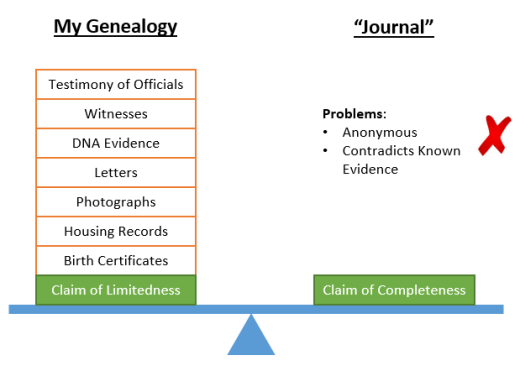
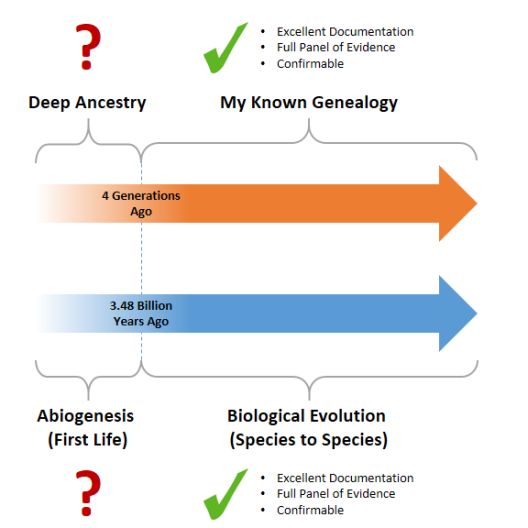
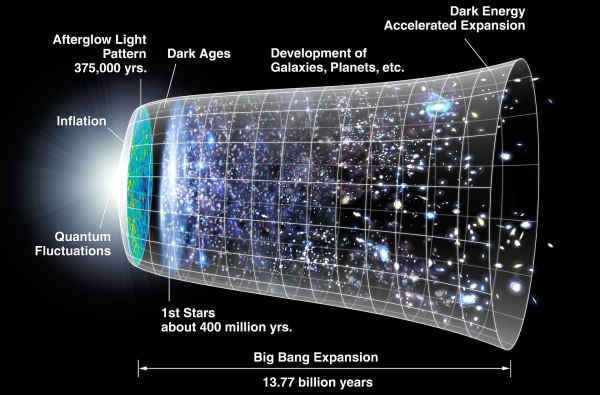
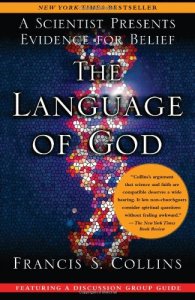
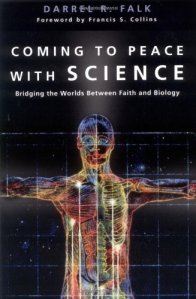
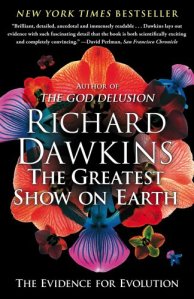
Dead YouTube embed fixed; now replaced with 11 hyperlinks to the videos of the series.
LikeLike
Great post. Very helpful. Thanks.
LikeLike
AWESOME POST! Applause.
Which part of Italy do your kin hail from?
And we are indeed getting closer to understanding the processes how life came about. here’s a rather convincing, painfully simple (dare i say, obvious) explanation for the urge to complexity:
http://www.rawstory.com/rs/2014/01/22/physicist-says-hes-solved-the-big-mystery-how-life-came-from-matter-and-he-may-be-right/
LikeLike
Thanks!
Italy – northern part, near Luca.
Interesting article. I saw this in a different piece a few weeks ago. Its pretty interesting to think about. However, I looked in the article comments and found that some other scientists were saying (claiming at least) that this idea has been around and not original to England. It isn’t clear to me who is telling the truth… would seem like he is bringing something new to the problem, but I haven’t really dug to the bottom.
I find it ironic that the Second Law could actually be the best explainer – rather than refuter – for the spontaneous arising of life. But I don’t pretend to have dug through it all, and it likely hits at a mathematical level that’s above me.
LikeLike
It seems so logical, almost childlike: energy in, response by reorganisation and orientation.
Lucca, huh? My dads family hails from much further north, Auronzo di Cadore. They actually founded the town with another family, with the earliest document of ownership dating from 1111 CE.
LikeLike
Wow, that’s pretty cool. We have no idea what my family did. But I think I’ll take Bible-level latitude with what I do know: I’m quite certain we must have been the other family. We were “kindof a big deal”. LOL
LikeLike
Hahaha. Well, we have the benefit of them never moving, anywhere, EVER, for a thousand years. They just stayed in the same valley, having babies, and when the bloodline got enough diluted they’d created another suffix for the root name Zandegiacomo. There have been 26 to-date.
LikeLike
That’s funny. But you left… Or did it happen a few generations earlier?
LikeLike
After WW1.
LikeLike
If this post does not change a few minds then hang up your keyboard because it is a lost cause.
LikeLike
LOL. it actually did NOT work terribly well upon the intended, but I have faith in people. 😉
LikeLike
This, I think, is faith worth keeping. Even if it’s only sometimes or even rarely justified, that’s enough reason.
Now, I suppose Susan’s comment was tongue-in-cheek. However, I will say that even if this post never changes one mind by itself, I think it’s still useful, as part of the whole. Consider–as in Evid3nc3’s Why I am no longer a Christian YouTube series–the many aspects of the framework of a Christian worldview. This touches but one.
LikeLiked by 1 person
This is simply one of the best treatments of this subject I’ve ever read. Comparing it to one’s genealogy is brilliant in its simplicity. I’ll definitely be borrowing it next time I have this discussion.
Sorry it wasn’t persuasive to the people you’re talking to, but maybe it’s sown some seeds that will eventually pay off (to mix metephors). It’s a shame that people still push back on it even when you give them the out of “maybe God just did it this way.”
LikeLike
Thanks very much Nate – your opinion means a lot to me.
I need to do a piece on this, but I think its high time we took up the better arms of “story” and “parable”. We are talking to normal people, not critical-thinking skeptics. The average person doesn’t rigorously apply if-then critical thinking to faith questions, and they’ve been taught not to. Instead they are bonded to the power of the stories they know. And that is perhaps, IMO, the best way to penetrate the fog. If we’re going to win the day, and I really do think we can, I think it will have to be with the potent tools of story. Our personal stories are powerful. But why stop there?
I like Hitchens’ turn of phrase on this: to plant the subversive thought. A splinter in the mind. Once inside, these memetic stories and parables clatter around. My friends will have many decades to remember the courtroom, and I’m very willing to play the long game. I’m a marathoner. 🙂 I didn’t change overnight, and I think perhaps nobody really can.
But facts wash off by the next morning for most. Story doesn’t. We must go beyond analogy to full blown story. How hard is it to remember the parable of the Good Samaritan? It isn’t. In fact, its pretty nearly impossible to forget. The Good Samaritan wasn’t critical thinking. It wasn’t even “analogy”. It was better than that – a memetic story that touched every part of the brain and soul at once. So it is in story I am putting my “faith” for friends… story is the only target faith ever had. Let’s abscond with it. 🙂
LikeLike
I agree, they need a story. I love stories! Here is one from my blog; (The Reed Sea) http://falashaleott.blogspot.com/2011/11/reed-sea.html
LikeLike
That’s an excellent point. Guess I’ll have to spend some time thinking up stories now. 🙂
I think the need for story helps explain why Christians will often say “well if the Bible wasn’t inspired, was it just some elaborate conspiracy?” Even though we may not know exactly who wrote the Bible and why (I’m aware of some of the theories, of course), if we don’t give them some ideas on how it could have happened, I suppose it’s easier for them to continue assuming the Bible is completely true. But once you lay out some possibilities that account for the state of the Bible and its history, it’s not quite so easy to assume it must be true by default.
LikeLike
You’re absolutely right there. They don’t handle blanks well. And sometimes an alternate account of the history – like what Finkelstein or Dever give, is better than no alternate story at all.
I’ve also been thinking of the questions that we Christians never ask. The Socratic splinter… After I had a friend admit that he didn’t know who wrote Genesis (and who does?), I asked him, “whose payroll was the author on?” A truly subversive little thought. Because the author actually was on someones payroll, and that makes the author really really human. As a Christian who used to think that a lot of the world was conspiring against us, I was as familiar as anyone with the whole “follow the money” way of thinking. Whose payroll was the author on? Whose payroll were the assemblers of the Jewish Bible on? The editor that compiled Genesis? Unless we know otherwise, and we don’t, these guys earned their income from somewhere – who were they answering to, and under what orders?
We ask this constantly in the modern era about all authority figures. Bible counts, and the questions are just as reasonable there.
LikeLike
That’s true. My best friend quit believing when we were in high school when he found out that Constantine had a hand in establishing the canon. The involvement of a politician alone was enough to make him wash his hands of the whole thing.
LikeLike
Wow. I suppose that would do it.
LikeLike
I will add: I’m thinking it’s presumptuous to assume that we necessarily ought to have these answers (by now)–that we “deserve” them. In fact, who’s to say whether we’ll ever know? We may, though–and I hope so–but we may not.
LikeLike
Rata,
Yeah, there will always be a “current limit” to what is known. That won’t ever change. But an argument from ignorance isn’t excusable as a response, and that’s what the god-of-the-gaps depends entirely upon. “I don’t know” is a perfectly acceptable answer, and a humble one. But you can quickly be accused of both arrogance and ignorance if you’re the one to voice it in dialogue with a creationist. 🙂
LikeLike
Here is an interesting thread on the problems with Jesus’ parables.
Matt’s parable does not have these problems. 😉
LikeLike